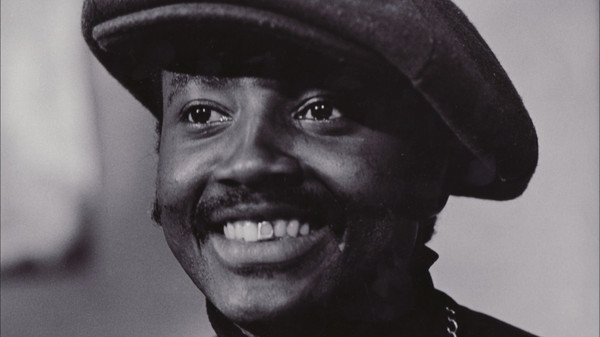Donny Hathaway—singer, pianist, producer, composer, and one of R&B’s strongest talents—was born Donny Edward Pitts on October 1, 1945, in Chicago, Illinois. Hathaway was raised in the Carr Square Housing Projects of St. Louis, Missouri by his grandmother Martha Pitts. At the age of three, Hathaway began singing in church choir alongside his grandmother, a professional gospel singer. By six years old, Hathaway was composing his own music, singing, and playing the piano professionally under the name “Donny Pitts, The Nation’s Youngest Gospel Singer.”
Hathaway was a known piano prodigy before reaching high school and in 1964, and received a full scholarship to attend Howard University where he joined Alpha Phi Alpha Fraternity. While majoring in Music Theory and performing in the jazz group Ric Powell Trio, Hathaway worked as a session musician and songwriter for labels like Chess. His arrangements for The Staple Singers, Curtis Mayfield, and Aretha Franklin earned him a job at Curtom Records in 1969. There he recorded his first single, “I Thank You, Baby,” a duet with June Conquest.
Later that year, Hathaway signed with Atlantic Records as a solo artist and released his debut single, “The Ghetto, Pt. 1.” The song reached No. 23 on the R&B charts and established Hathaway as a burgeoning force in music. His critically acclaimed LP Everything is Everything and hit single “This Christmas” followed in 1970. By 1971, Hathaway released his second full-length album, Donny Hathaway. Classics like “A Song For You” and “He Ain’t Heavy, He’s My Brother” would come to solidify his musical legacy for generations to come.
By 1972, Hathaway and Roberta Flack collaborated on series of duets. Their album, Roberta Flack & Donny Hathaway, hit No. 3 on the pop charts and included “Where Is The Love?” which earned the pair the Grammy Award for Best Pop Performance by a Duo in 1973. That August, Hathaway’s album Live edged into the Top 20 and became Hathaway’s first and only gold album. Today, Live is considered one of the greatest live albums of all time. Aside from his work as a singer, Hathaway scored the feature film Come Back Charleston Blue and recorded the theme song for the television series Maude.
Amidst his growing success, Hathaway was diagnosed with paranoid schizophrenia and was frequently hospitalized due to intense mood swings and depression. However, periods of mental clarity allowed Hathaway to record and release his final studio album, Extensions of a Man in 1973. Songs like, “Someday We’ll All Be Free” and “I Love You More Than You’ll Ever Know” secured spots on both the R&B and pop charts. Soon after the album’s release, Hathaway dropped from the public eye and sought treatment.
In 1978, Hathaway returned to the studio to record with Roberta Flack. “The Closer I Get To You,” became the pair’s second No. 1 hit and inspired the recording of the second album of duets. However, on January 13, 1979, Hathaway was found dead outside of the Essex House in New York City, New York after a fall from the window of his 15th-floor hotel room. Although investigators ruled his death a suicide, family and friends believe his death may have been an accident. Donny Hathaway was only 34 years old.

